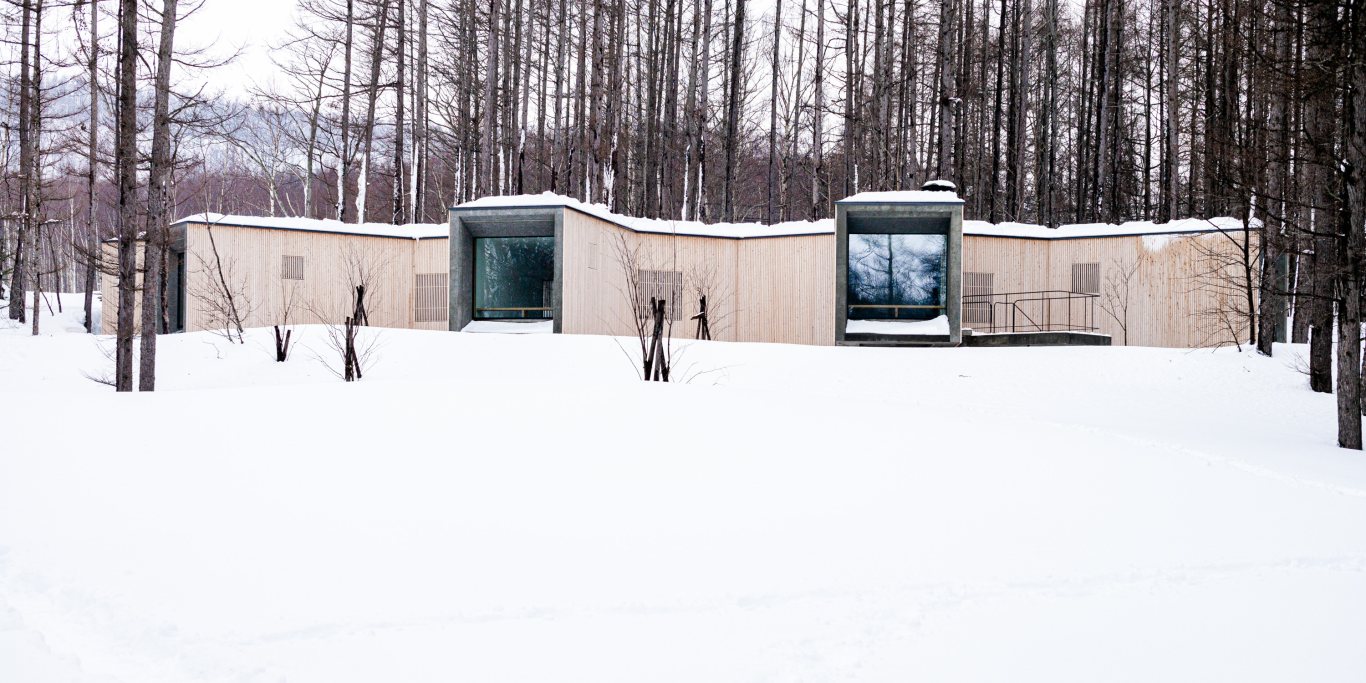House in the Forest
Rankoshi, Hokkaido, Japan, 2017—2020
This project begins with close to three hectares of barely touched forest. Only a short distance from Niseko’s ski slopes, the silence here is the antithesis of the vacation bustle that has turned several of the renown ski area’s towns into a haphazard sprawl of increasingly suburban dimensions.
Solitude
Enchanted by the beauty of the region but disturbed by this relentlessly encroaching pseudo-suburbia, the owners, a large family, are seeking escape in the forest’s solitude. Consequentially, the brief is not for a house but for a time in and with the forest.
Trees
The site is an almost perfect square with 160-metre-long edges, filled with tall pine trees. As we approach, a mound prevents any views into the site: The only access, a small rural road running along the northern boundary, was lowered many years ago. After we climb up this mound, we stand between the trees. A gentle slope leads down towards the south for about 100 metres before the top of a steep acclivity demarcates the site’s southern border. About half-way in, there’s a clearing at the site’s western boundary.
Instinct
Moving between the trees evokes curiosity. We are probing the surroundings. Every subtle movement changes the depth of our perception. The clearing that we have discovered is the site’s only place where the distance turns the trees into an abstract background. Yet instead of placing the building in the middle of the clearing (which would result in 360 degrees of background), we keep meandering between the trees at the edge to the clearing, protected by the trees around us.
Forest
The building branches out horizontally. Moving through the house is moving through the forest. As our views keep changing from far to near, the forest is both distant background and tactile environment.
The end of each branch is cut open. The closer we move to the extremes (the end of the branches), the more we are drawn into the forest. While the protection of the inside separates us physically from the experience of the forest, the focus and scale of the windows to the forest intensifies it. We are sitting in the forest.
In the house’s central spine, this focus of selection is replaced by a multi-faceted instantaneity. As a multitude of views of the forest around us are filling the space, the original experience inside the forest is always present.
Dialogue
The House in the Forest is not about a fixed form but an ever-changing dialogue with the forest. The eventually built is merely the result in a process of probing and responding to the surroundings to create a place where the family can be both together and by themselves, where they can become part of the forest.
Rankoshi, Hokkaido, Japan, 2017—2020
Type
Status
Team
Florian Busch, Sachiko Miyazaki, Mayo Shigemura, Luca Marulli, Tenesha Caton, Max Duval
Structural Engineering: OAK (Masato Araya, Takayuki Fujimoto)
Contractor: Wakisaka Corporation
Size
GFA: 230 m²
Structure
(timber frame on raised reinforced concrete slab)
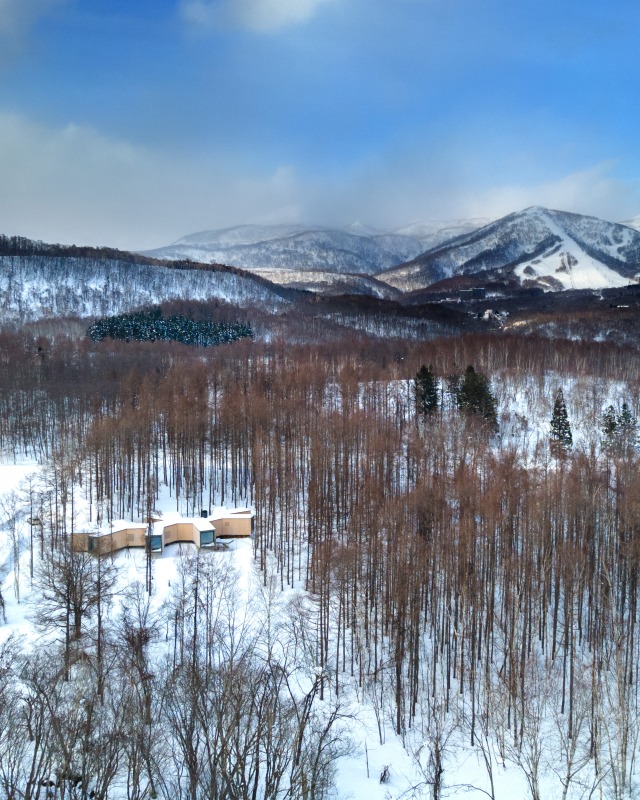
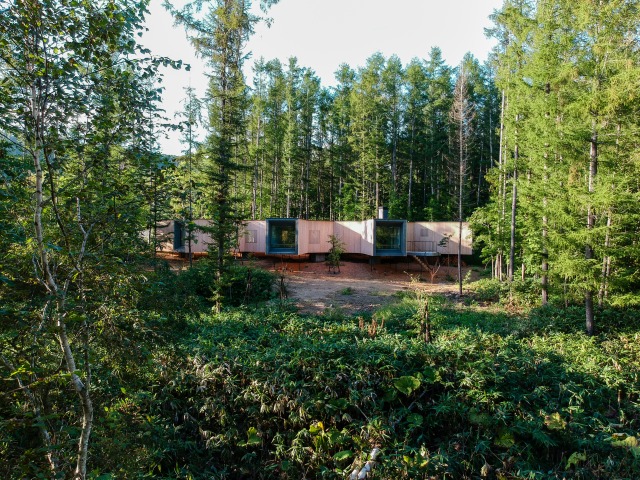
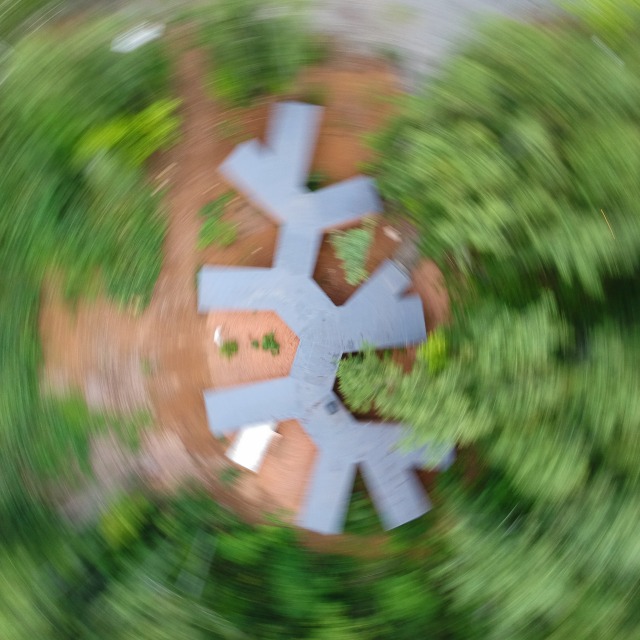
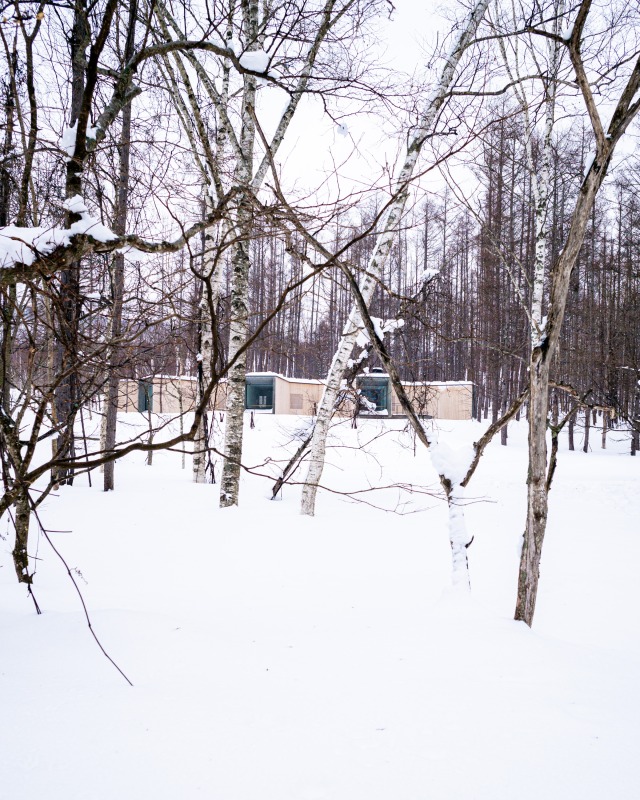
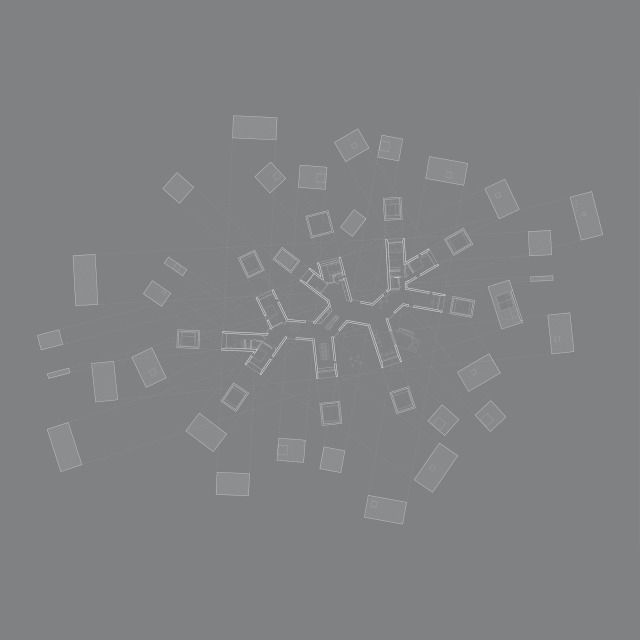
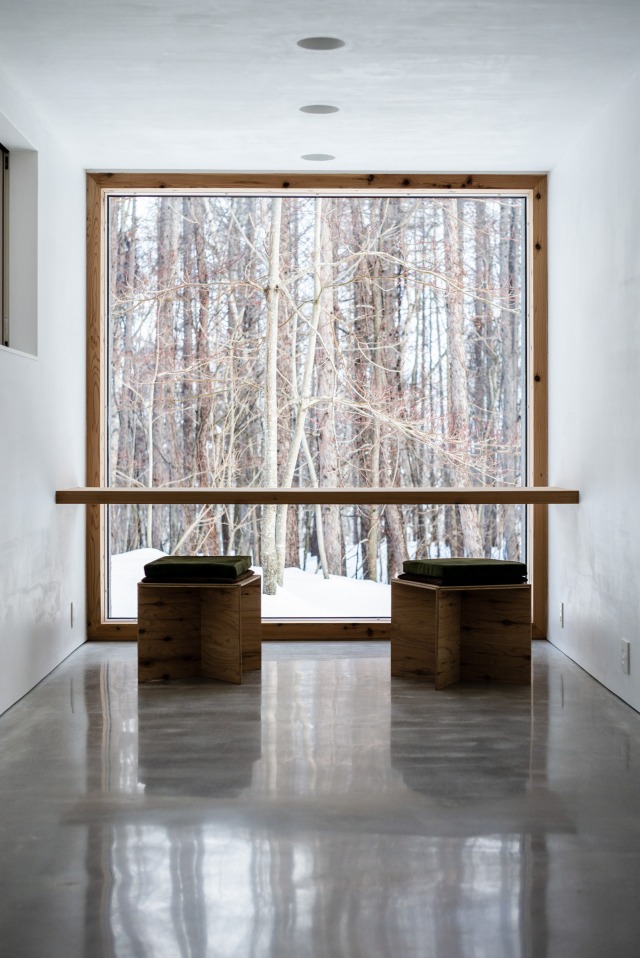
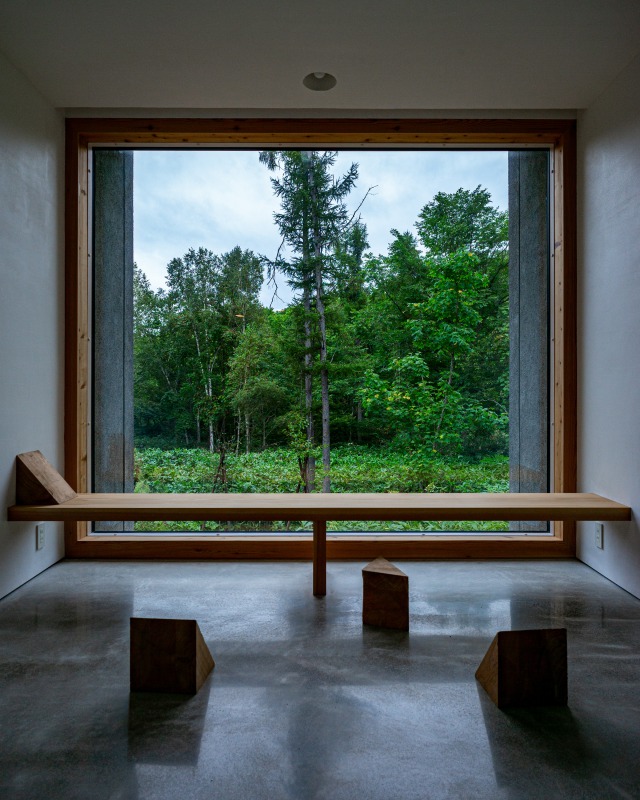
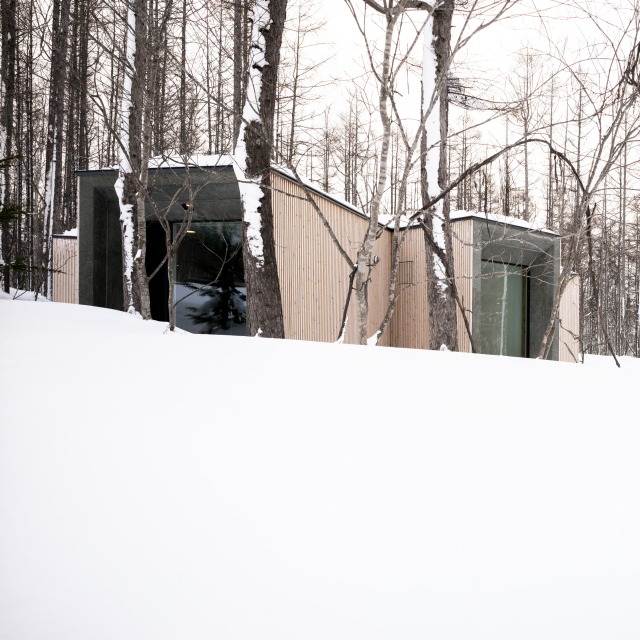
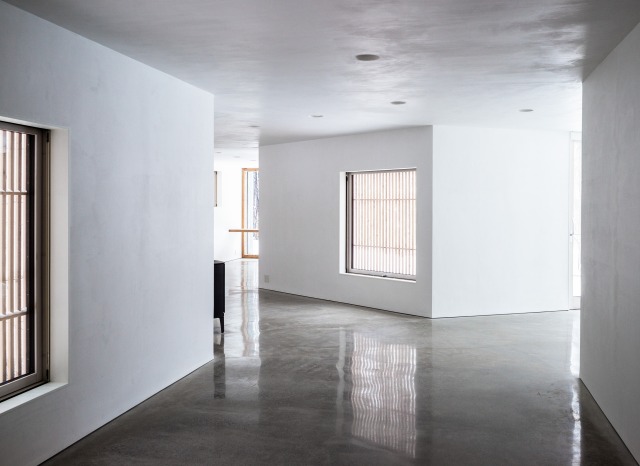
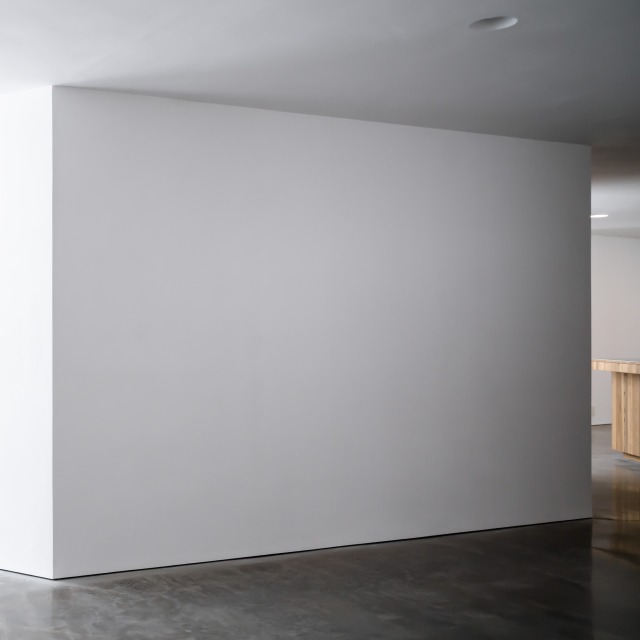
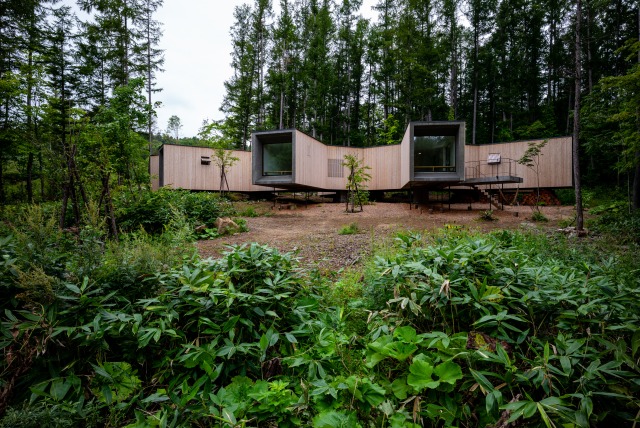
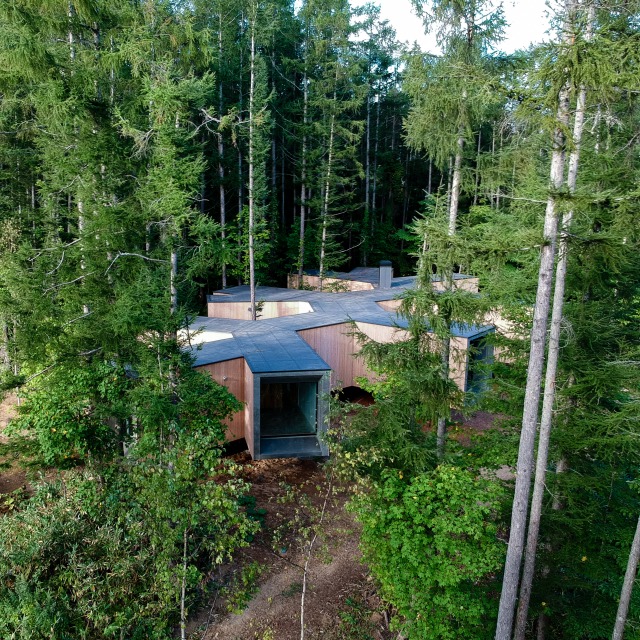
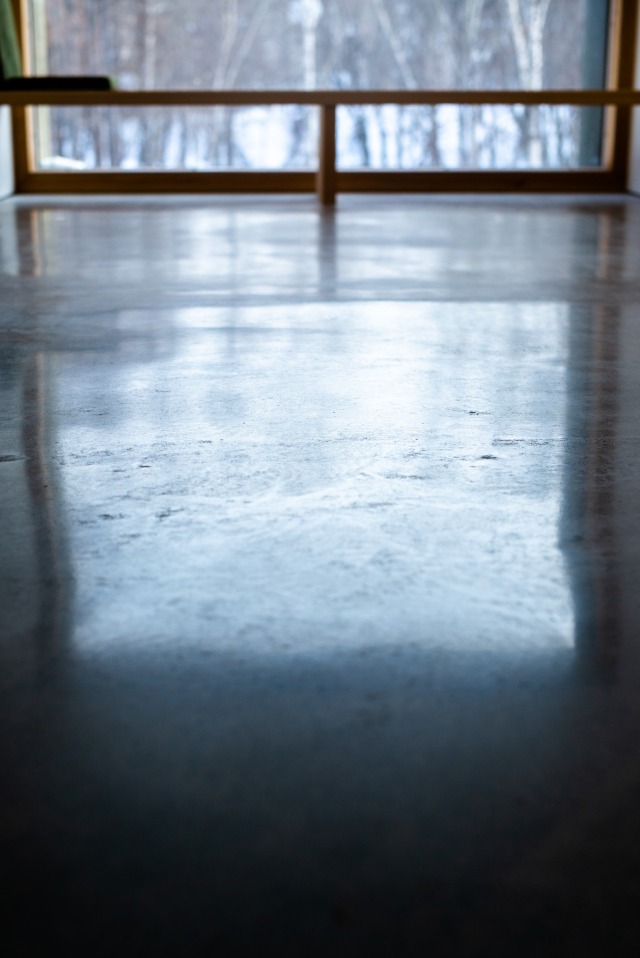
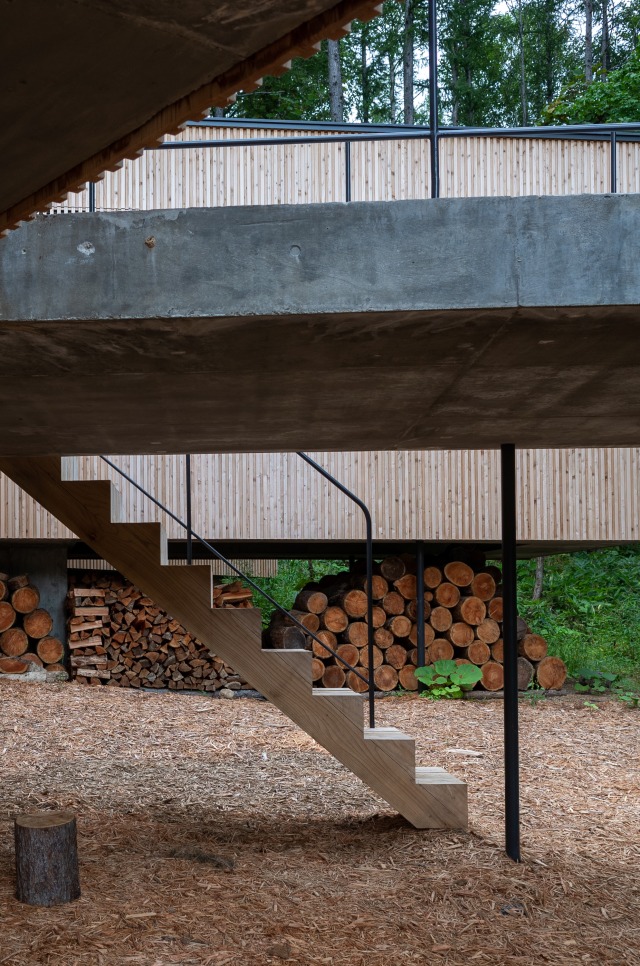
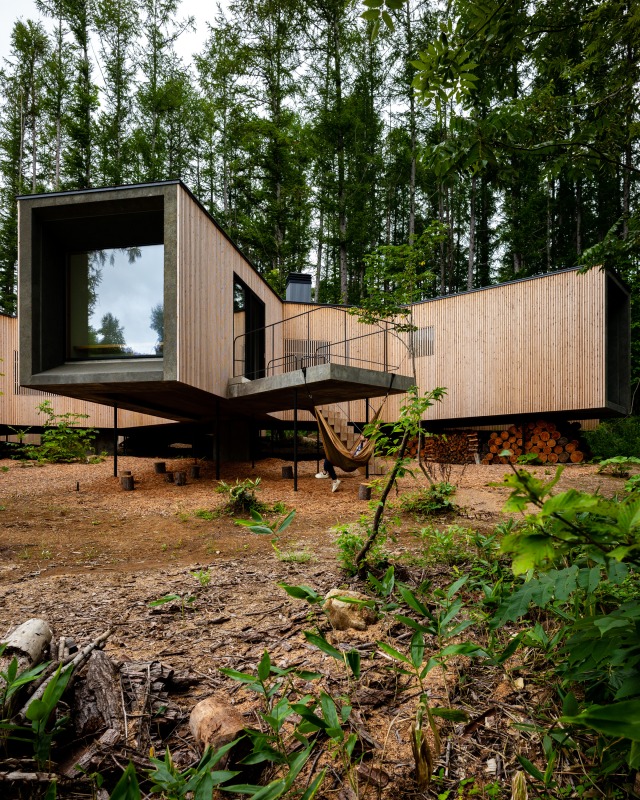
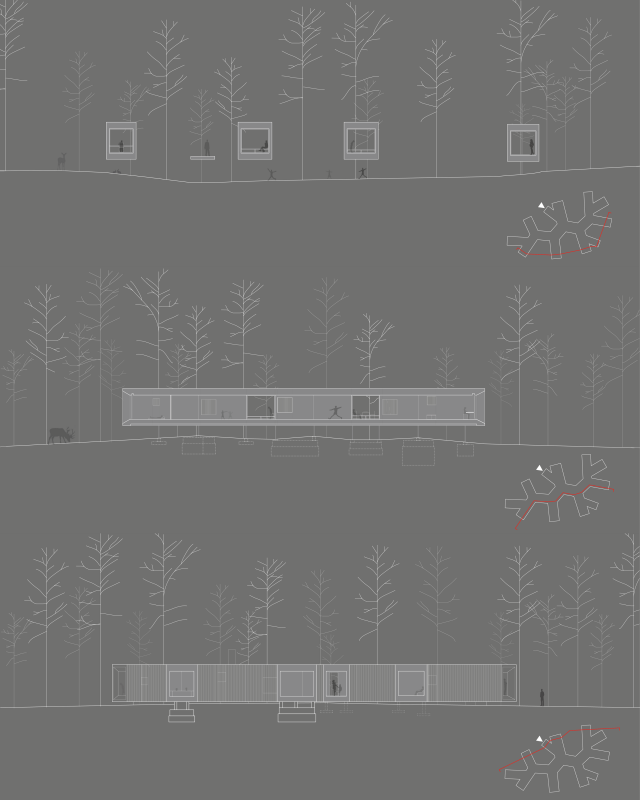
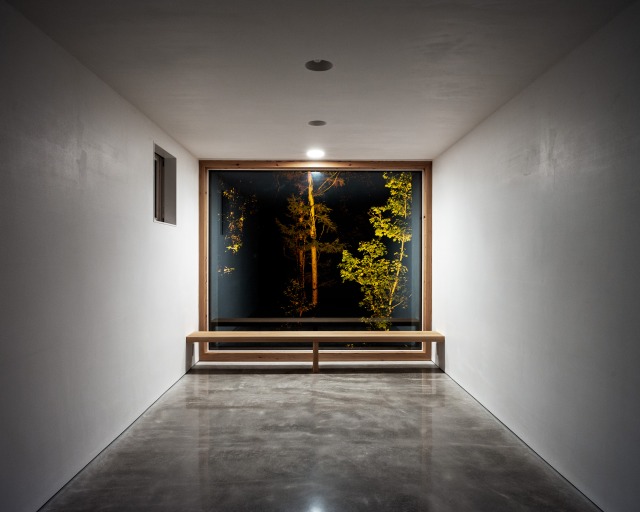
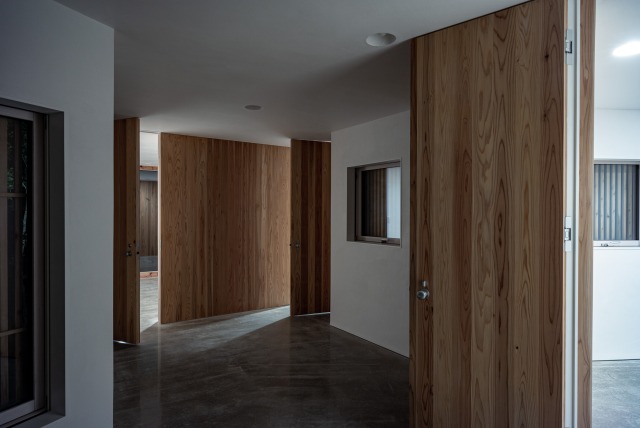

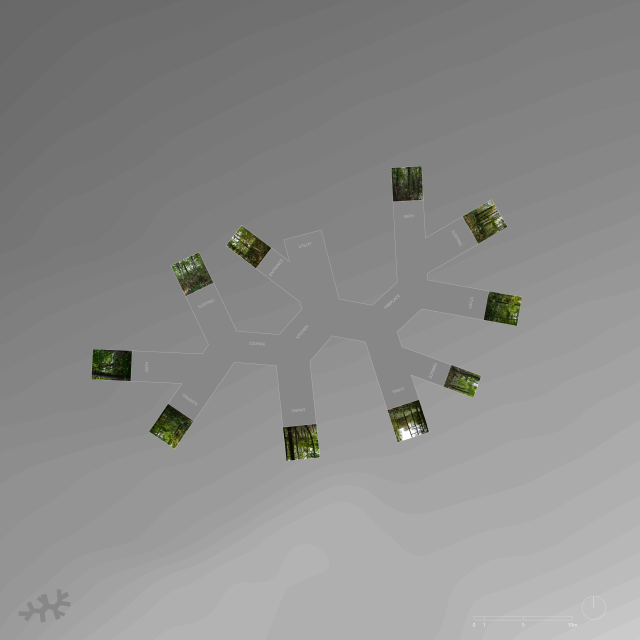
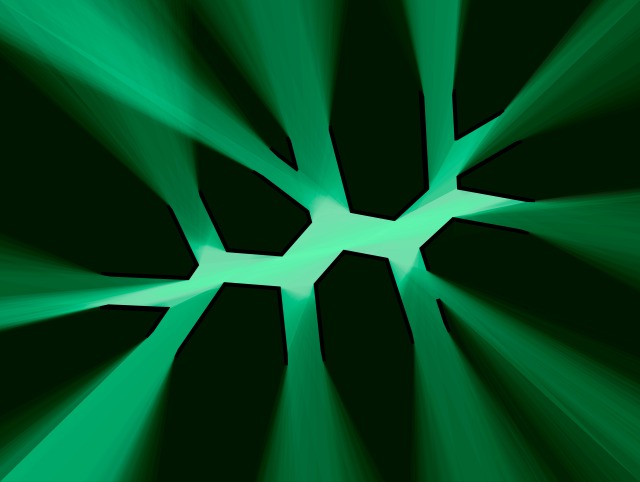
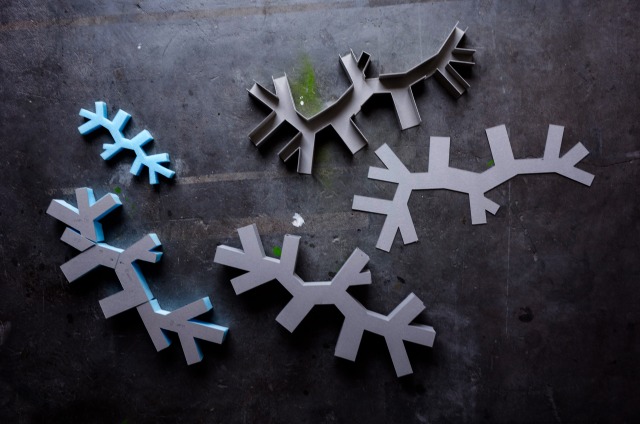
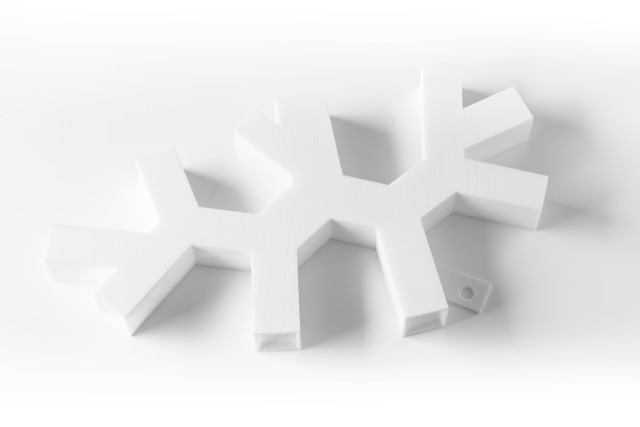
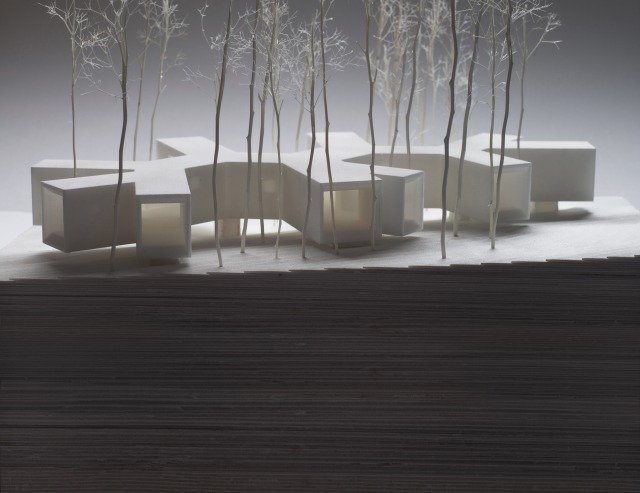
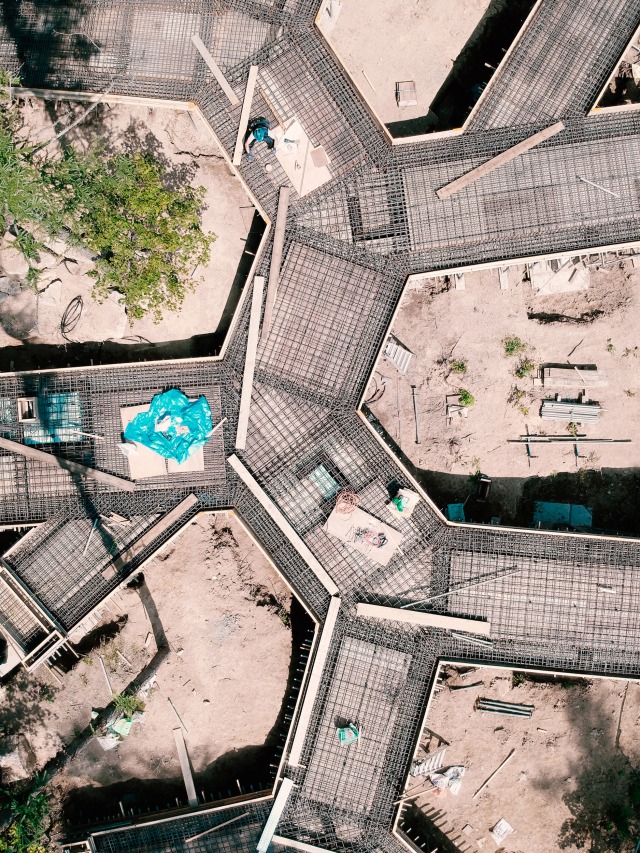
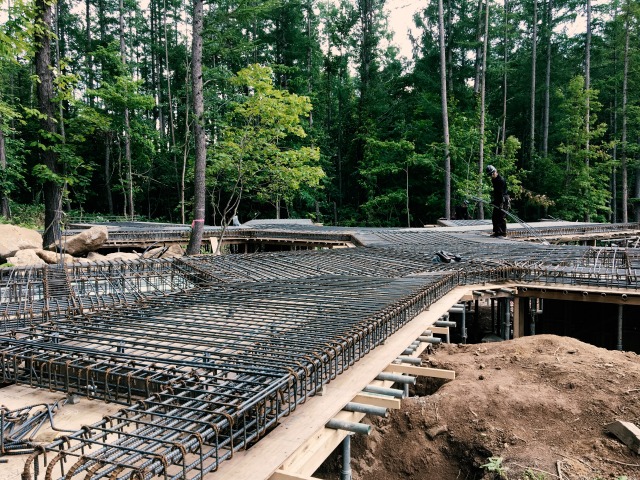
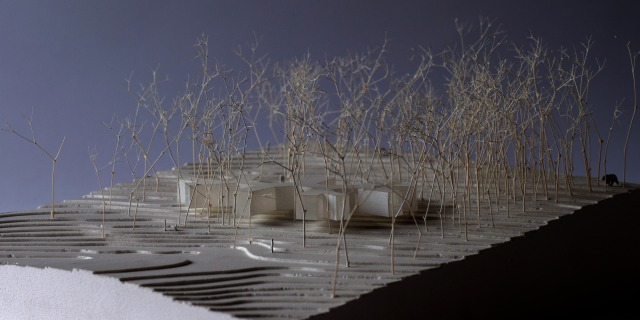
Award
- Award for Excellence in Innovation | House in the Forest, 2022
- Best Architecture Drawings of the Year, 2020
publications
- House in the Forest in Diseno Interior, 2022
- FBA | selected works | vol. 3, 2022
- Living in the Forest | Phaidon, 2022
- Maison en Lévitation | AMC, 2022
- HOW TO SPEND IT | Financial Times, 2021
- Casas 2021 - Houses of the Year | AV Monografías, 2021
- House in the Forest | ROOM, 2021
- Verästelt: Wohnhaus in Hokkaido | DETAIL, 2021
- Дом-дерево в Японии | AD Russia, 2021
- House in the Forest | dezeen, 2021
- Solitude in Rankoshi | german-architects.com, 2021
- Jutaku Tokushu: The choice of going single storey, 2021
- A Modern Home in the Middle of a Forest | AD India, 2021
- House in the Forest | thisispaper, 2020
- House in the Forest | designboom, 2020
Related Projects:
- House W in Nakafurano, 2022—2024
- House of Voids, 2022—2024
- House in Sanbancho, 2023—2024
- Nobori Building, 2021—2023
- House I in Arishima, 2020—2023
- House in Nagatadai, 2021—2023
- Villa T, 2021
- I House in Izu-Kogen, 2019—2021
- Hirafu Creekside, 2021
- House in the Forest, 2017—2020
- Y Project in Kagurazaka, 2017—2018
- K House in Niseko, 2015—2017
- S House in Chiba, 2011—2015
- Our Private Sky, 2013
- L House in Hirafu, 2010—2013
- BL Project, 2012
- ‘A’ House in Kisami, 2009—2012
- House that opens up to its inside, 2011—2012
- House in Takadanobaba, 2010—2011
- F&F Project, 2011
- House on the Slopes, 2011
- Toké 7, 2010
- Two Roofs in the Snow, 2009—2010
- House in Karuizawa, 2009
- RG Project, 2009
